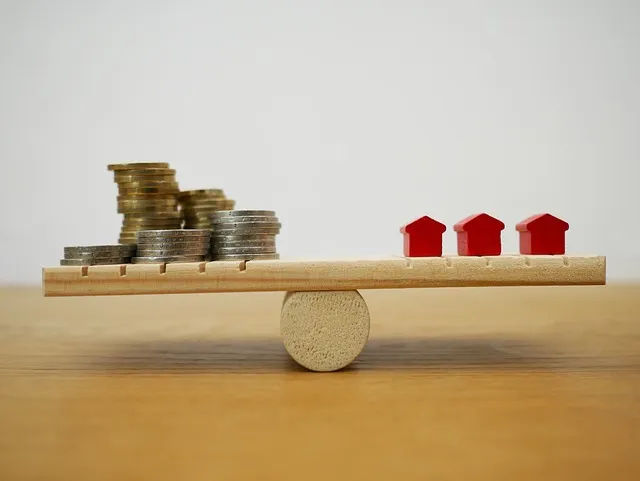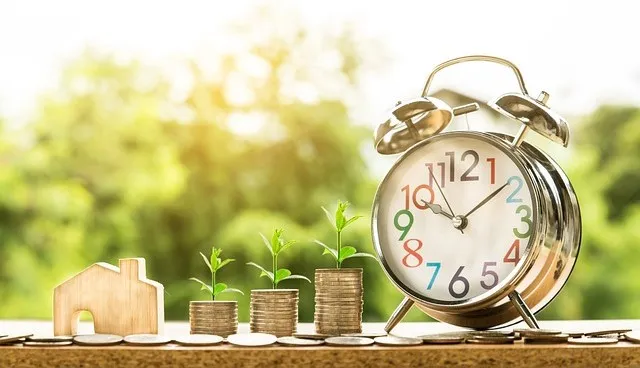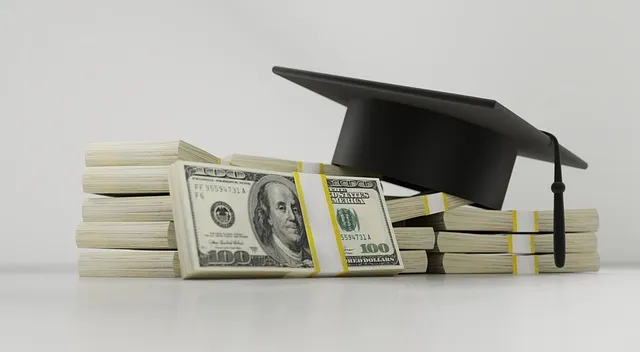A couple days ago, I wrote an angry holiday request to our elders wherein I unleashed some pent-up rage over my own situation and my observations of those around me. My claims have been challenged. A lot of my assertions are anecdotal, but a lot are also supported by data. I know, "lies, damned lies, and statistics." Yeah, yeah. I'm the first to say there's a distinction between data and interpretation of that data. That said, I think I can make a sound case for my frustration.
Housing costs

Image source
Since 1963, inflation has risen 896%, while housing prices have risen by more than 2,350%. During that same time, rent rose by 892%. That means rent has held pace with inflation, while homes have seen significant price increases, even when adjusted for inflation. However, given the regional and local characteristics of the rental market, some areas may have seen rents rise at rates faster than inflation.
Let's set aside any problem of how CPI is calculated. The rising cost of new homes traps people in rentals because they can't as easily afford to choose an alternative under these circumstances. I live in one of those regions where rent has far outpaced inflation. An apartment I rented until about 2012 at $630 per month is now at least triple that in just over a decade. My wages have not tripled.
"But you can move," you might glibly say in response. How is that a solution to the root problems I am trying to describe? Besides, my family is here. My friends are here. The job I finally found that I don't hate is here. If this is your advice, keep it to yourself. It only shows that you are not listening in the first place.
Wealth and Spending Habits

Image source
Relative to members of earlier generations, millennials are more racially diverse, more educated, and more likely to have deferred marriage; these comparisons are continuations of longer-run trends in the population. Millennials are less well off than members of earlier generations when they were young, with lower earnings, fewer assets, and less wealth. For debt, millennials hold levels similar to those of Generation X and more than those of the baby boomers. Conditional on their age and other factors, millennials do not appear to have preferences for consumption that differ significantly from those of earlier generations.

Millennial net wealth is half as much as Baby Boomers when they were young adults; wages have also
declined 20 percent for today’s young workers. Baby Boomers were much more financially secure than
Millennials when they were the same age. Boomers earned higher incomes, amassed greater assets, were more likely to own homes, and had greater net wealth when they were young adults than today’s young people. A young adult without a college degree in 1989 earned roughly the same income as a college graduate with student debt today. The only exception found in our indicators is retirement accounts, with Millennials owning retirement accounts more than the previous generation, although this is likely due to the shift from pensions to a reliance on individual retirement accounts.

Of course, the economy varied for each generation. While the Great Recession affected Americans broadly, it created a particularly challenging job market for Millennials entering the workforce. The unemployment rate was especially high for America’s youngest adults in the years just after the recession, a reality that would impact Millennials’ future earnings and wealth.
Note that all of these studies are from before COVID completely disrupted the economy, destroyed the work of many small-business entrepreneurs, created mass unemployment, and resulted in an unprecedented inflation of the money supply. Even before that chaos, millennials were reported to be struggling compared to older generations.
Millennials still get blamed for killing everything while wallowing in nostalgia. Go figure. Actually, just go away if this is your take.
COVID
But what has happened to what little we could save before that crisis? Anecdotally, I would say we generally got most of our pieces bounced back to Start in the modern economic game of Sorry. And the explicit purpose of the lockdowns and restrictions was to protect the elderly with a society-wide economic collapse instead of the focused protection advised in the Great Barrington Declaration.
Humans are social animals, but we were cut off from contact with friends and family. many of us were barred from earning a living unless some bureaucrat deemed us "essential," or at best transitioned into the worst possible forms of remote work without the necessary preparation and infrastructure. Those of us in face-to-face jobs were required to mask up and treat our fellow man as an ambulatory bio-hazard.
Millennials and Zoomers were told in no uncertain terms that dissent meant wanting Grandma to die. So broadly we accepted it. People who dared ask perfectly reasonable questions which turned out to be quite prescient were barred from our remaining human interactions on social media for "misinformation." This was utter hell on top of the problems of trying to build a financial foundation. COVID policy devastated us financially and psychologically, but the only curve that truly got flattened was our curve toward success.
Tuition and Consumer Debt

Image source
In 1980, the price to attend a four-year college full-time was $10,231 annually—including tuition, fees, room and board, and adjusted for inflation—according to the National Center for Education Statistics. By 2019-20, the total price increased to $28,775. That’s a 180% increase.

Today’s young adults are much better educated than their grandparents, as the share of young adults with a bachelor’s degree or higher has steadily climbed since 1968. Among Millennials, around four-in-ten (39%) of those ages 25 to 37 have a bachelor’s degree or higher, compared with just 15% of the Silent Generation, roughly a quarter of Baby Boomers and about three-in-ten Gen Xers (29%) when they were the same age.
I reiterate my assertion that even more than previous generations, Millennials were encouraged to pursue degrees, any degrees, because it was promised as a stepping stone to almost automatic success. This increased education rate for millennials is mentioned in many studies on our generation, our wealth, our debt, and our attitudes in general. The facts are plain to see.
This increased demand combined with the ever-benevolent government gladly subsidizing loans. What happens to prices when demand rises and costs are subsidized? You shouldn't need an economics degree to see how these two factors alone can play a role in costs ballooning. People have wildly differing ideas about how this expense should be addressed, but no one can reasonably deny that education costs have far outpaced inflation in other areas.
I see a lot of Gen-X and Millennial spending which is dangerous. Where I live, it seems people are financing not only homes, but also super-sized trucks, ATVs, and other toys. I have acquaintances who have been trapped by payday lenders and other legal loan sharks. But this is hardly universal to (or limited to) millennials, and I have been consistent in advising my peers to avoid any unnecessary debt.
Inflation

Image source
I have tried to explain what inflation really is, in contrast to its effects as commonly perceived by the public. Manipulation of money supply and credit, primarily at the level of national central banks, creates ripple effects of unintended consequences.
Price controls always create economic chaos, and in a sense, interest rates are the price of money over time, so it should come as no surprise that when the Federal Reserve (or their foreign equivalents abroad) sets interest rates, it cannot help but be wrong for what the market would discover naturally, and results in malinvestment. But these effects take time to shake out, and one of the benefits of having vestiges of a market economy is the ability of market actors to adjust. Nonetheless, consequences cannot be postponed forever, and these adjustments can have adverse effects beyond changes in supply or price.
The economywide decline in service quality that we're now seeing is something different, and it doesn't have a good name. It's a situation where we're paying the same or more for services, but they kinda suck compared with what they used to be. We propose a new word to describe this stealth-ninja kind of inflation: skimpflation. It's when, instead of simply raising prices, companies skimp on the goods and services they provide.

[M]anufacturers are quietly modifying their recipes to save money and maintain their profit margins. The phenomenon, which has been called "skimpflation" and "flavorflation," is a way to hide the impact of inflation and avoid passing higher costs on to the consumer. But by replacing expensive ingredients with cheaper ones, companies are also making food less tasty, less healthy, and less satisfying.
Of course, good ol' "corporate greed" is always a handy scapegoat. The fact remains that inflation is not only affecting our bottom line, it's also ruining many things we remember enjoying. Sometimes, "they don't make it the way they used to" is true. But fundamentally it is the inflation of the money supply which is fueling the wealth gap and destroying our quality of life more than anything else. But hey, the stock market hit new highs, and houses are expensive, so let's all just pretend the economy is fine.
War and National Debt
The government spends more than it takes in as revenue. This deficit must be funded by debt. The collateral is the earnings of future generations. This is slavery with extra steps. We don't "owe it to ourselves." Our ancestors sold us into bondage behind a veneer of patriotism. And now more than ever, that debt is threatening to create economic turmoil as the central bank tries to undo the inflationary mess it made.
Let's not forget the massive costs of the "Global War on Terror," which served as a backdrop to almost our entire adulthood, and not just the debt it imposes on future generations in perpetuity. Countless lives were lost, homes destroyed, farms made barren, roads demolished, and bodies crippled. This does not make us free. It starts a cycle of generational anger and the result will be more blowback. Those who lost their families are likely to say they are owed not just money, but revenge. And while I disagree, I can't blame them. No one learned the real lessons of 9/11. Our elders have set us up for more cycles of violence with no way out.
The Conclusion?
This post has felt like an example of Brandolini's Law in action as I dug up a variety of references and studies. I deliberately selected a variety of sources leaning both left and right. I know it isn't conclusive or exhaustive, and there are plenty of sources which dispute some of these points. Nonetheless, I think it demonstrates that I can support my core claims.
Millennials are in dire financial straits, have disproportionately suffered the consequences of prior policies which benefited older generations at our expense, and have been saddled with crisis after crisis. We graduated from college or high school straight into a Global War on Terror and the Great Recession. Costs for housing, tuition, health care, and basic necessities have ballooned far beyond the inflation rate, placing things our parents took for granted out of our reach. Social Security has proven to be yet another unfunded liability and is projected to be out of reserves long before we retire. COVID kicked us down just as we were finally sensing potential for progress.
Even though the US economy is growing – according to a recent CNN poll, 76% of Americans think it’s doing better than it has in decades – not everyone is prospering. Millennials are on track to be the first generation not to exceed their parents in terms of job status or income, studies show.
Note that the above is, like many of my links, another pre-COVID assessment. And I haven't even discussed the increase in two-income households among younger generations to maintain standards of living single-income households easily achieved in the 1970s and 1980s. Yes, we have advancements like the internet, mobile phones, and cryptocurrencies on our side now. The costs of computers have plummeted while power expanded. So ask yourself for a moment why this hasn't allowed us the kind of wealth increases over previous generations that were once the norm with industrialization? If anything, Zoomers and future generations have even worse prospects ahead.
When millennials say times are hard, money is short, stress is high, and mental health is in decline, you need to either show sympathy and find a way to help, or shut the hell up. It isn't a matter of Millennials being lazy of frivolous. There are deeper systemic problems. Talking down to us ignores this reality. I showed my receipts, and I stand by my rant. Remember, "Boomer" is a mindset, not a birth year. Don't be a Boomer.

